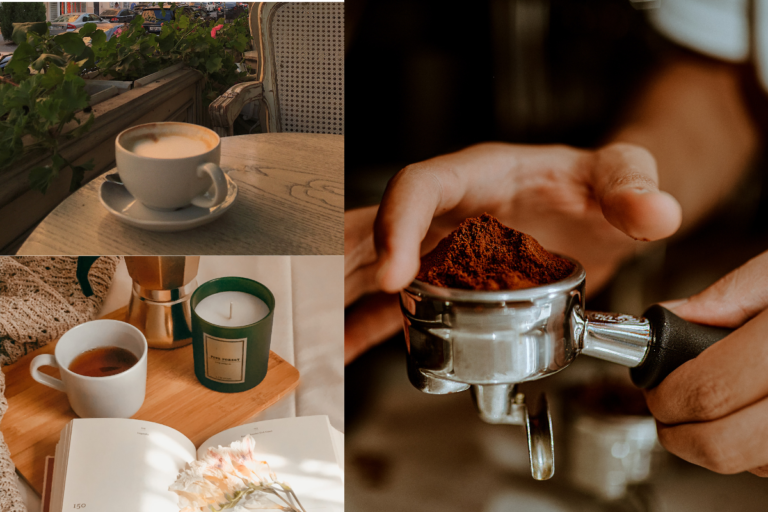Whether it’s the morning hustle to kickstart your day or those leisurely moments in the afternoon, the choice between coffee and tea is a decision we’ve all encountered. These two warm beverages have captured hearts and palates worldwide, each amassing its own legion of fervent fans. But which one truly reigns supreme? Let’s dive into a comprehensive analysis to uncover the distinct benefits and aromas that coffee and tea bring to our lives.
Over centuries, coffee and tea have stood as steadfast companions to many cultures and societies. Both come with rich histories and deep-rooted traditions, each boasting its own devoted following. Yet beyond personal preferences, coffee and tea offer a range of health benefits, mental stimulation, and a unique sensory experience. Let’s step into this flavor and aroma showdown, weighing the pros and cons of each cup.
Health Benefits
Coffee
Coffee is renowned as the morning fuel, providing a much-needed energy boost. Moreover, studies suggest that coffee may have health benefits, such as improved brain function, boosted metabolism, and even reduced risk of certain diseases like Parkinson’s and type 2 diabetes. However, moderation is key to avoid undesirable side effects such as insomnia or jitteriness.
Tea
On the other hand, tea boasts its own arsenal of health benefits. Teas like green tea are rich in antioxidants that combat free radical damage and enhance cardiovascular health. Herbal teas, like chamomile, can provide a soothing effect and aid digestion. The caffeine in tea is often gentler than in coffee, making it an ideal choice for those seeking to avoid excessive jitters.

Mental Stimulation
Coffee
If you’re seeking an immediate brain boost, coffee is your steadfast ally. The caffeine in coffee acts as a stimulant that can enhance concentration, focus, and even mood. That sip of coffee might be the push you need to tackle a pile of work or a meeting ahead.
Tea
While coffee is known for its robust caffeine kick, tea can also offer a milder dose of mental stimulation. The amino acid L-theanine, present in many types of tea, promotes a relaxed state of alertness. This means you can reap the benefits of focus without the peaks and crashes often associated with coffee.
Variety of Flavors and Aromas
Coffee
Coffee is like a catalog of aromas and flavors spanning an exhilarating spectrum. From dark roasted beans to medium and light roasts, each type of bean offers a unique sensory experience. From the intense and chocolaty flavor of dark roasted beans to the fruity and acidic profile of light roasts, coffee can be a true palate journey.
Tea
While coffee impresses with its variety of roasts, tea enchants with an equally vast array. Black teas offer a comforting robustness, while green teas bring a vegetal freshness. Herbal teas can offer aromatic and soothing blends, such as lavender or mint. With each cup of tea, you can explore a new world of aromas and flavors.
Ritual and Culture
Coffee
Coffee holds a significant presence in many cultures, often linked with socialization and story-sharing. In countries like Italy, espresso is a symbol of pause and camaraderie. Cafés also serve as gathering spots where people come together to debate ideas, work, or simply enjoy the moment.
Tea
From the Japanese tea ceremony to the British tradition of afternoon tea, tea boasts a rich history of rituals and customs. Tea is often associated with moments of relaxation and reflection. Additionally, tea often plays a role in traditional medicine across various cultures, such as Chinese medicine, where different types of tea are valued for their therapeutic properties.
Environmental Impact
Coffee
Coffee production can have a significant environmental impact, especially when not cultivated sustainably. Large-scale cultivation can lead to deforestation and habitat loss. However, increased awareness has led to efforts to promote more eco-friendly cultivation practices, such as shade-grown and organic coffee.
Tea
While tea also faces environmental challenges like water-intensive cultivation and soil degradation, tea cultivation often coexists harmoniously with other plants and trees. Furthermore, the growing demand for organic and sustainable teas has driven the adoption of more eco-friendly production practices.

Hydration Effect
Coffee
Coffee is known for its diuretic properties, meaning it can lead to fluid excretion and potentially contribute to dehydration, especially when consumed in excess. However, the diuretic effect of coffee can vary from person to person, and proper hydration can be maintained with moderate and balanced water consumption.
Tea
On the other hand, tea tends to have a gentler hydrating effect, making it a more balanced choice to keep the body hydrated throughout the day. Herbal teas, like chamomile or mint, are particularly gentle on the digestive system and can aid in hydration.
Conclusion
After this comparative analysis of benefits and aromas, it’s clear that the choice between coffee and tea is a matter of personal preference and context. Both beverages have their own merits and distinct characteristics that can suit different moments of the day and situations.
If you’re after an energy burst and robust flavors, coffee might be the right pick. If you’re seeking a gentle sensory experience and therapeutic properties, tea might be the ideal choice. Moreover, there’s no need to pick sides; many hot beverage enthusiasts enjoy both coffee and tea, alternating between the two based on what they desire in each moment.
Ultimately, the real winner is our diverse palate and the opportunity to explore the realms of flavors, aromas, and cultures that coffee and tea have to offer. So, may your cup always be filled with joy and discoveries, regardless of your choice!


